This guide is designed to help you prepare confidently for your trip to East Africa, answer common questions, and give you insider tips from our years of guiding safaris.
BEFORE YOU TRAVEL
Passports
Your passport must be valid for at least 6 months after your planned return date.
The name on your booking must exactly match your passport.
Carry a photocopy of your passport’s photo page separately from the original and leave a copy at home with family/friends.
Digital scans stored securely online (e.g., in email or cloud storage) are also recommended.
Visas & Entry Requirements
Kenya:
Requires an Electronic Travel Authorization (ETA) — visas on arrival are no longer issued. Apply online before travel.
Tanzania:
No more visa on arrival from 30 Nov 2024 — apply online at www.immigration.go.tz before you travel.
East Africa Tourist Visa (Kenya, Uganda, Rwanda):
Multiple entries for 90 days, USD 100.
Ideal for visiting all three countries in one trip.
Expect potential delays at Uganda’s land borders.
If visiting only Kenya & Uganda, applying for separate e-visas can save time.
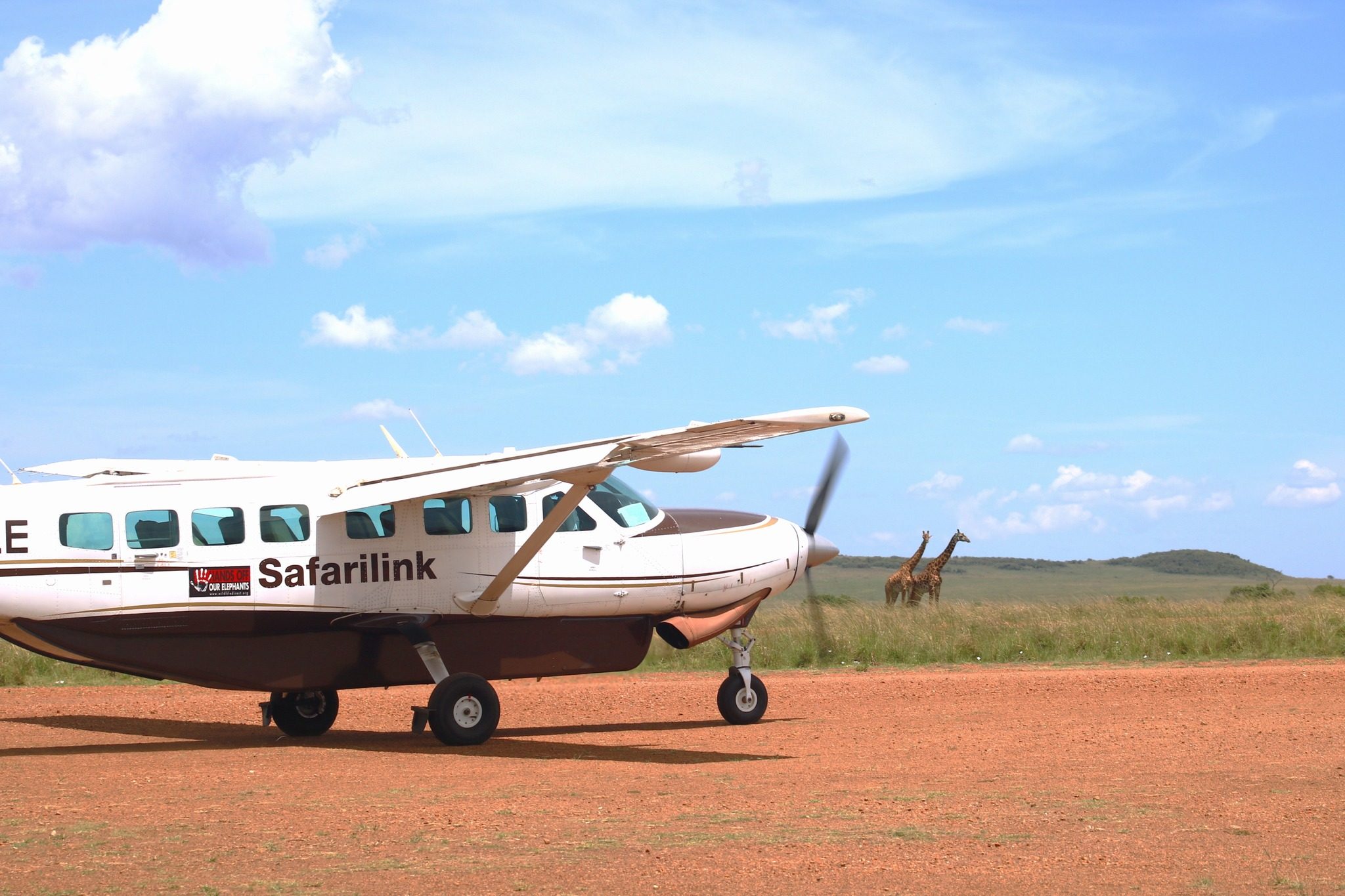
Border Crossings & Multi-Country Travel
Major crossings (e.g., Kenya–Tanzania Namanga border) can have wait times from 30 minutes to over 2 hours depending on traffic.
Keep your passport, visas, and Yellow Fever certificate ready for inspection.
Currency exchange is possible at borders but often with poor rates — use ATMs or exchange in cities before crossing.
Health, Vaccinations & Medical Safety
Yellow Fever: Proof of vaccination required if coming from a Yellow Fever risk country (including Kenya, Uganda, Tanzania).
Carry a personal medical kit with: mild painkillers, oral rehydration salts, anti-diarrhea tablets, antibacterial gel, wet wipes, plasters, motion sickness tablets.
Drink only bottled or purified water. We provide safe drinking water throughout your safari.
Avoid ice in drinks outside trusted hotels.
Eat freshly cooked food; peel fruit before eating.
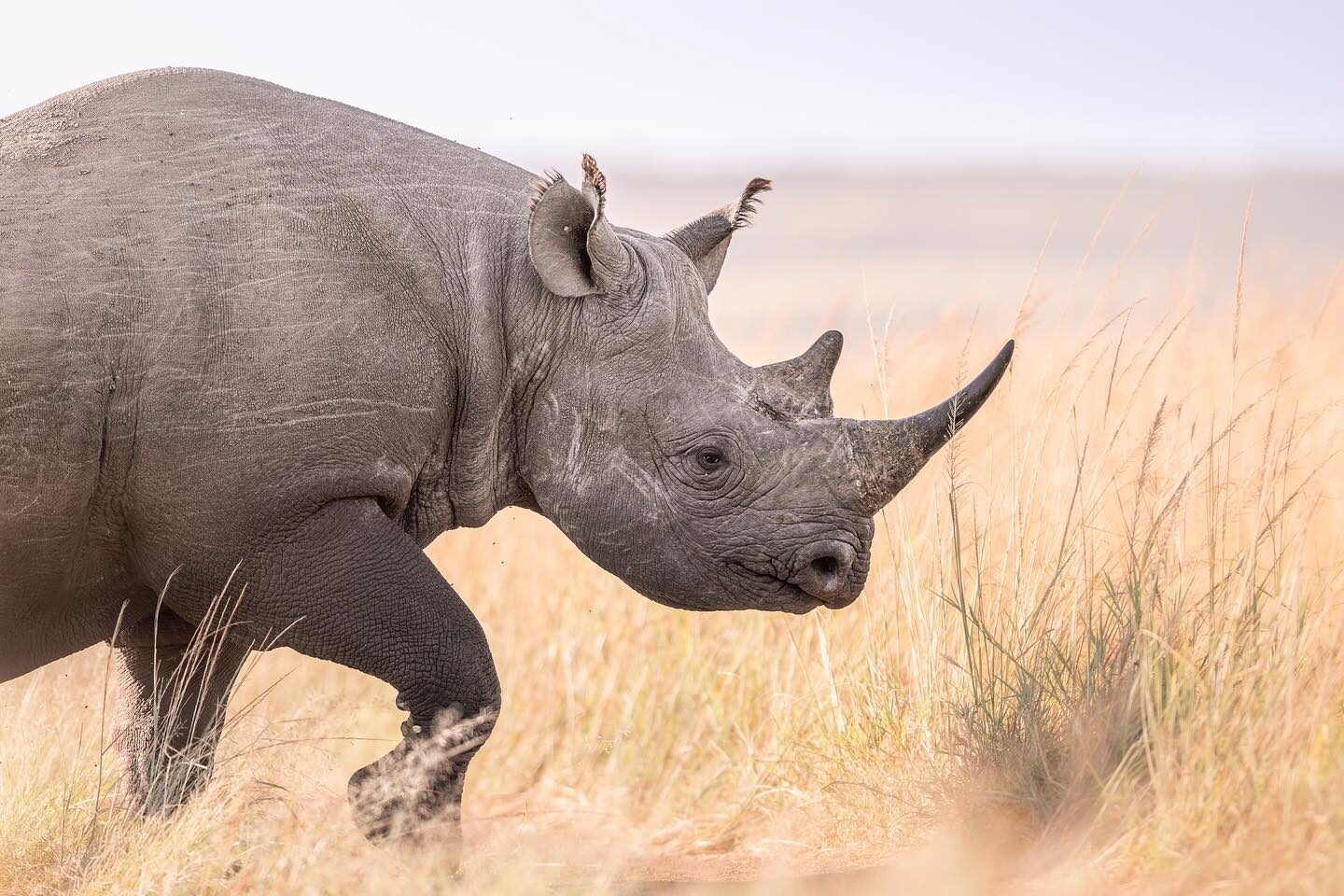
Travel Insurance
Comprehensive insurance is essential — covering medical care, trip cancellation, evacuation, and repatriation.
Zanzibar: From 1 Oct 2024, inbound travel insurance from Zanzibar Insurance Corporation ($44) is mandatory for all foreign visitors (up to 92 days).
Emergency Contacts
Save these numbers in your phone:
Good Secrets Safaris 24/7 Line: +254-729-000-410 (WhatsApp enabled)
AMREF Flying Doctors (Emergency Air Evacuation): +254-20-699-2299
Kenya Police Emergency: 999 or 112
Tanzania Police Emergency: 112
For embassy/consulate assistance — see: https://www.embassypages.com
Flights & Airport Transfers
Jomo Kenyatta International Airport (NBO): Main gateway, 13 km from Nairobi CBD.
Wilson Airport (WIL): Domestic flights — allow 3+ hours transfer time from NBO.
Moi Mombasa International (MBA): Coastal gateway.
For small aircraft to safari airstrips: strict 15 kg soft-bag limit, including hand luggage.
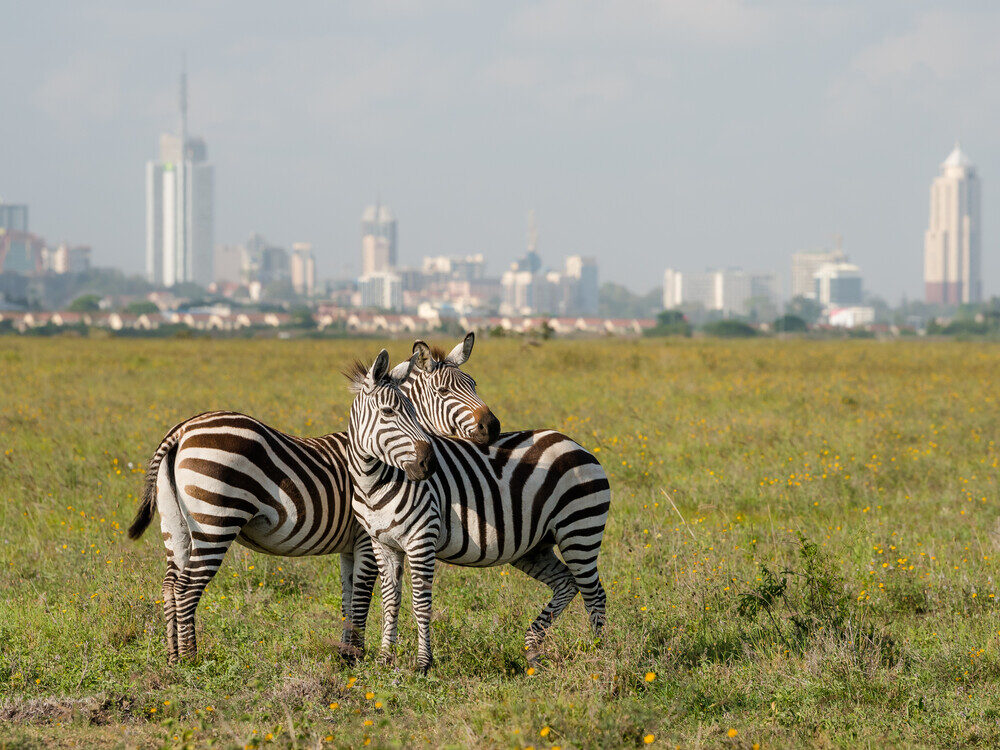
Money & Payments
Currencies: Kenya Shilling (KES), Tanzania Shilling (TZS). USD widely accepted.
US bills must be clean, untorn, issued after 2013.
Mobile money (M-Pesa, Airtel Money) is widely used for small/local payments.
Credit cards accepted in most lodges — 3–5% surcharge common.
ATMs available in major towns — inform your bank before travel.
Tipping Guidelines
Driver/Guide: USD 7–10 per person/day
Lodge Staff: USD 5–8 per person/day (shared tip box)
Porters: USD 1–2 per bag
Gorilla/Chimp Trackers: USD 20–30 per trek

Packing & Clothing
Pack light — soft-sided bags only (max 15 kg for internal flights).
Essentials:
Comfortable closed shoes/walking boots
Lightweight layers, long sleeves/trousers for evenings and mosquitoes
Waterproof/windproof jacket
Sunhat, sunglasses, high-SPF sunscreen
Insect repellent
Camera + extra batteries/power bank
Binoculars
Most lodges offer laundry service, so you can pack fewer clothes.
ARRIVAL & DURING YOUR SAFARI
Luggage & Security
Use a padlock on bags.
Keep valuables to a minimum.
Store documents/cash in a money belt or hotel safe.
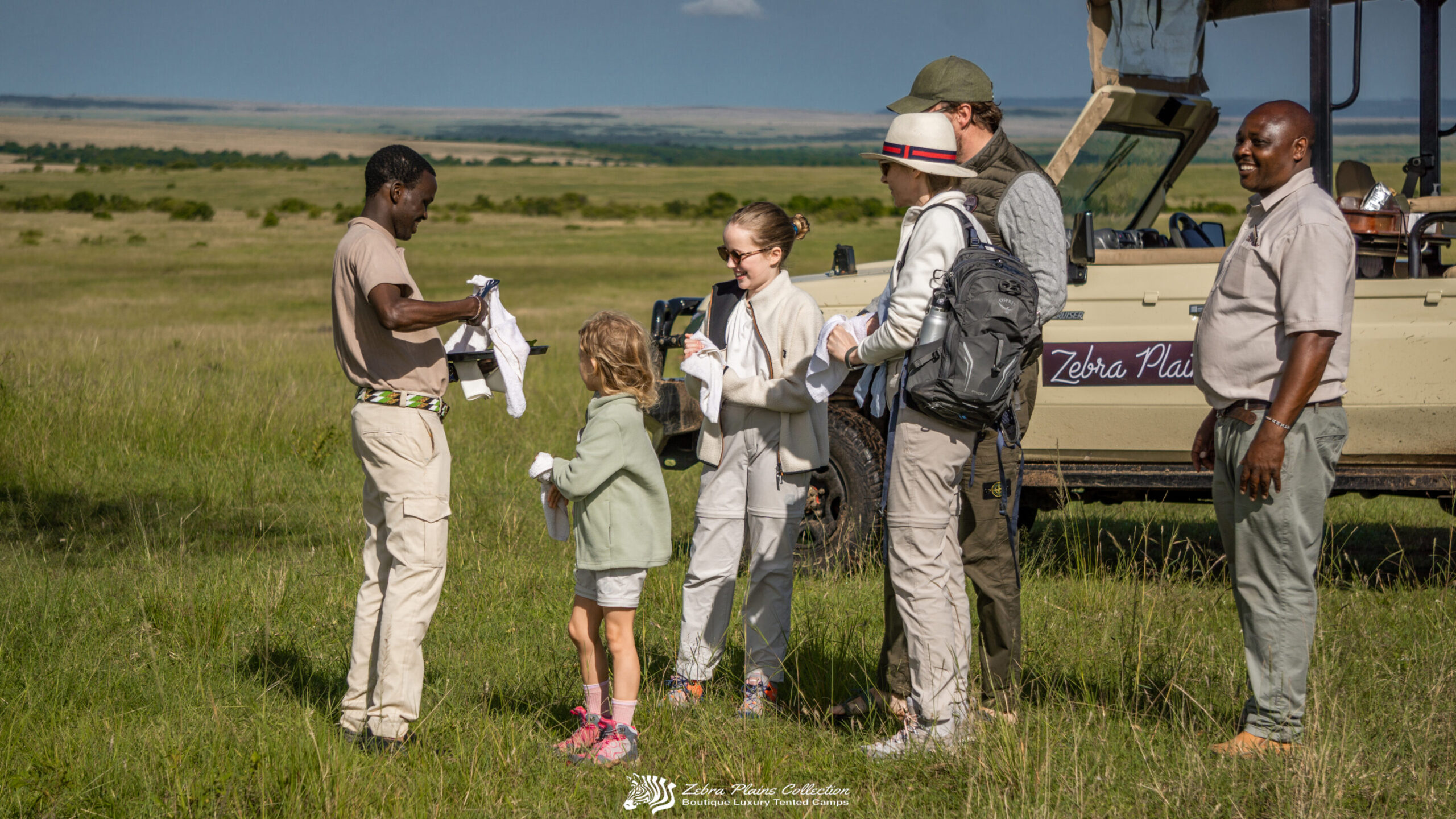
Safety & Etiquette
Always follow your guide’s instructions.
Stay inside the vehicle during game drives unless permitted.
Keep voices low at sightings; avoid sudden movements.
No feeding wildlife.
In cities, avoid walking alone at night, keep phones/cameras secure.
Photography & Drone Rules
No flash for wildlife photography.
Ask before photographing people.
Drones: Banned or heavily restricted in Kenya, Tanzania, Rwanda — special permits required.
Connectivity & Communication
Mobile signal strong in towns, patchy in remote parks.
Wi-Fi in many lodges — speeds vary.
SIM cards: Safaricom (Kenya), Airtel/Vodacom (Tanzania) available at airports — carry your passport for purchase.
WhatsApp is the primary contact method used by guides and lodges.
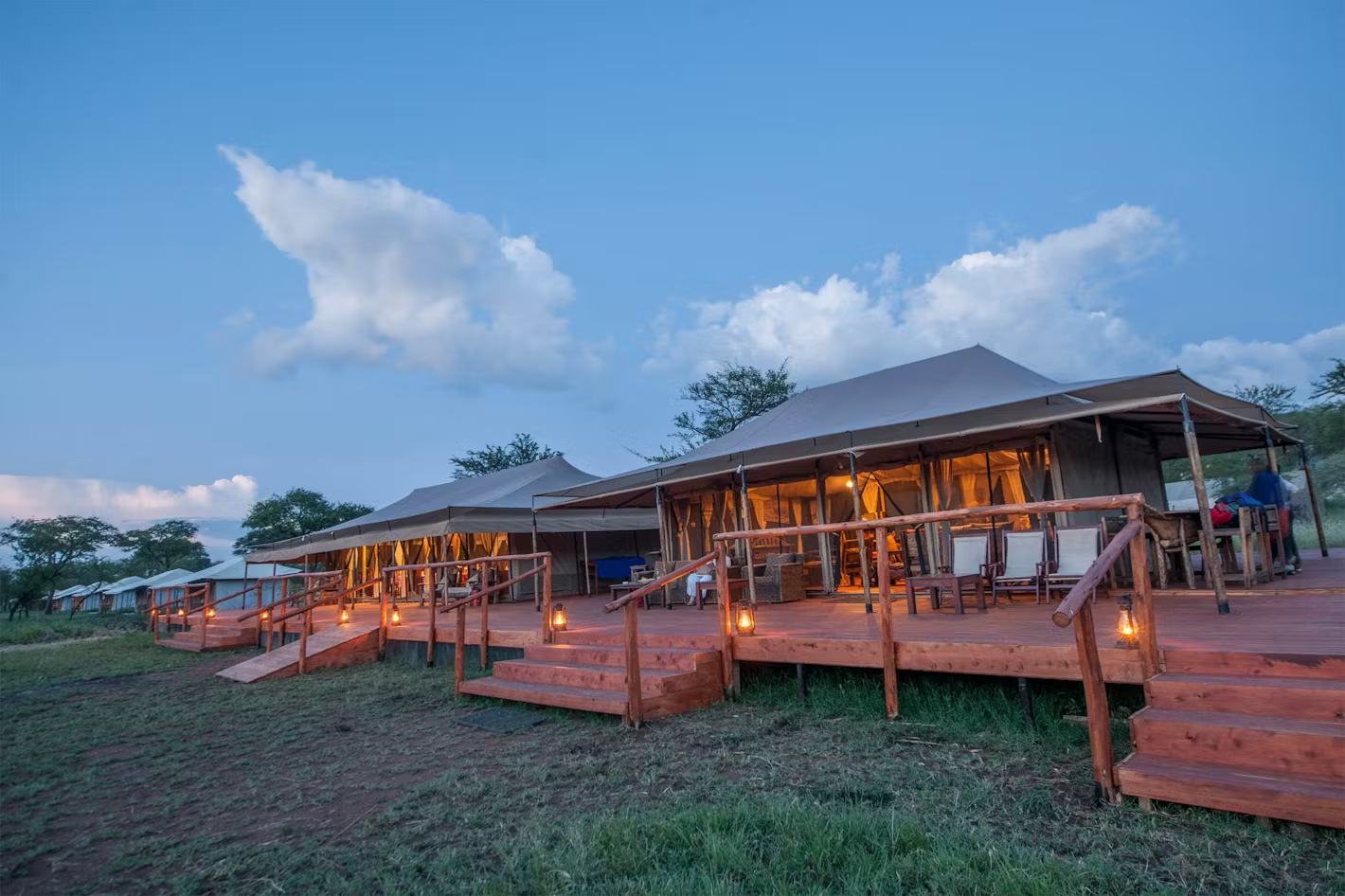
Weather & Seasons
Long Rains: Mid-March to June
Short Rains: October to December
Wildlife viewing excellent year-round — migration season in the Mara/Serengeti typically July–October.
Optional Experiences
Balloon safaris (USD 450–550 pp)
Guided walking safaris
Night game drives
Cultural village visits
Boat rides and birdwatching trips
Wildlife Viewing Etiquette
Share the view — don’t block others at sightings.
Limit viewing time if other vehicles are waiting.
Keep distance from animals for their safety and yours.
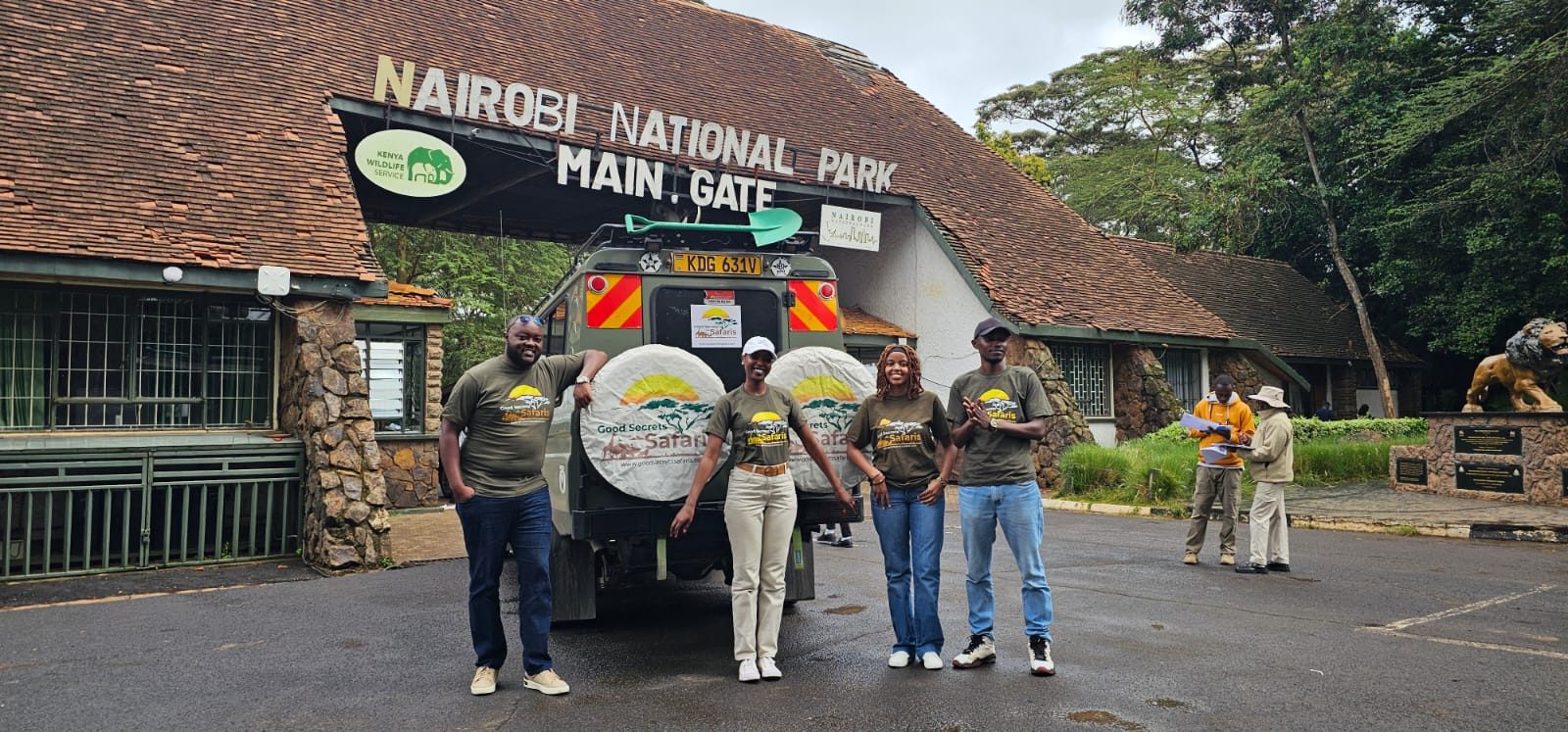
EXTRA PRACTICAL TIPS
Local Etiquette
Swahili greetings: “Jambo” (Hello), “Asante” (Thank you).
Dress modestly in Zanzibar and rural areas.
Useful Travel Apps
Maps.me — offline maps
XE Currency — currency converter
Google Translate (download Swahili offline pack)
Customs Restrictions
No ivory, coral, shells, or animal products.
Alcohol and cigarette allowances vary — check destination customs rules.
RESPONSIBLE TRAVEL
Kenya & Tanzania have strict plastic bag bans — surrender any at the airport.
We support conservation and community initiatives — travel with respect for wildlife, people, and the environment.
AFRICA’S BEST KEPT SECRET — LET US HELP YOU DISCOVER IT
To Download This Guide, click here.

